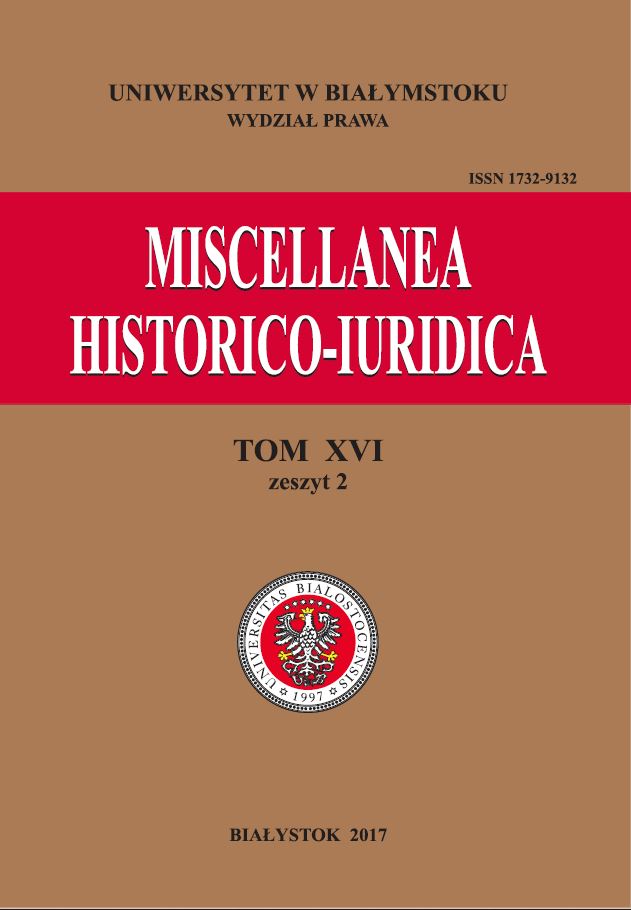How an old thought can live on today – reflections on the Dictionary of criticism of the Enlightenment’s utopias
Keywords:
philosophy, criticism, utopia, EnlightenmentAbstract
Today the importance of the Age of Enlightenment is undeniable. The cult of Reason and Nature not only contributed to the development of culture and science, but also to the development of the state, law and society. According to the Dictionnaire critique de l’utopie au temps des Lumières (Critical Dictionary of Utopia in the Age of Enligh- tenment), XVIII century utopian thought may carry influence in the present era. This monumental tome, published in Geneva in 2017, is written in French and has more than 1400 pages. It is the product of the joint-effort of more than 50 scholars from different countries, all gathered round the dictionary’s creator and editor, Professor Bronislav Baczko (1924–2016). In 2011, Baczko received the Balzan Prize for his studies on the works of J.J. Rousseau and Enlightenment. The dictionary is his crowning achievement and serves as a fitting tribute to his lifetime contribution to philosophy. It contains some 54 terms concerning the Enlightenment’s utopia, each having been the subject of critical analysis research. The issues addressed in the dictionary may be of interest if, not value, to specialist from a wide variety of disciplines including lawyers. In this latter respect the dictionary discusses such legal expressions as: the legislation, the law, the state, the police, crime and punishment, human rights and war and peace. The interdisciplinary nature of the dictionary is not its sole attribute. This is one of the latest studies on Utopia and the Age of Enlightenment, and the message Baczco’s delivers is both humanistic and universal.
References
Baczko B., Hiob, mój przyjaciel. Obietnice szczęścia i nieuchronność zła, tłum. J. Niecikowski oraz M. Kowalska (R. XII), Warszawa 2002.
Baczko B., Rousseau: samotność i wspólnota, Warszawa 1964.
Baczko B., Światła utopii, tłum. W. Dłuski, Warszawa 2016.
Baczko B., Wyobrażenia społeczne. Szkice o nadziei i pamięci zbiorowej, tłum. M. Kowalska, Warszawa 1994.
Beccaria C., O przestępstwach i karach, tłum. E.S. Rappaport, Warszawa 1959.
Breczko J., Nowa duchowość, [w:] Wielowymiarowość człowieka, red. K. Kuźmicz, Antropologiczna Szkoła Filozofii Prawa Marii Szyszkowskiej, Białystok 2017.
Dictionnaire des utopies, sous la direction de M. Riot-Sarcey, T. Bouchet et A. Picon, Larousse 2007.
Kant I., Do wiecznego pokoju: projekt filozoficzny, tłum. M. Żelazny, Toruń 1995.
Kuźmicz K., Filozoficzne przesłanki instrumentalizacji prawa w utopii komunistycznej, „Micellanea Historico-Iuridica” 2015, t. XV, z. 1.
Kuźmicz K., Kilka uwag w obronie utopizmu, na marginesie pracy Łukasza Stefaniaka, Utopizm: źródła myślowe i konsekwencje cywilizacyjne, „Miscellanea Historico-Iuridica” 2013, t. XII.
Kuźmicz K., Utopie i antyutopie a totalitaryzm. Refleksje filozoficznoprawne, [w:] O prawie i jego dziejach księgi dwie. Studia ofiarowane Profesorowi Adamowi Lityńskiemu, kom. red. M. Mikołajczyk, J. Ciągwa, P. Fiedorczyk, A. Stawarska-Rippel, T. Adamczyk, A. Drogoń, W. Organiściak, K. Kuźmicz, Białystok–Katowice 2010.
Lévi-Strauss C., Antropologia strukturalna, tłum. K. Pomian, Warszawa 2000.
Mannnheim K., Ideologia i utopia, tłum. J. Niziński, Lublin 1992.
Parniewski W., Szkice z dziejów myśli utopijnej (od Platona do Zinowjewa), Łódź 2000.
Pomian K., Collectionneurs, amateurs et curieux: Paris, Venise: XVI–XVIII si`ecle, Paris 1987, wyd. polskie: Zbieracze i osobliwości: Paryż, Wenecja: XVI–XVIII wiek, tłum. A. Pieńkos, Warszawa 1996.
Pomian K., Krótka historia nierówności między ludźmi na przykładzie Europy, Kraków–Warszawa 2015.
Pomian K., L’ordre du temps, Paris 1984, wyd. polskie: Porządek czasu, tłum. T. Stróżyński, Gdańsk 2014.
Popper K.R., Społeczeństwo otwarte i jego wrogowie, t. 1, Urok Platona, tłum. H. Krahelska, Warszawa 2006.
Popper K.R., Społeczeństwo otwarte i jego wrogowie, t. 2, Wysoka fala proroctw: Hegel, Marks i następstwa, tłum. H. Krahelska, Warszawa 2006.
Popper K.R., W poszukiwaniu lepszego świata: wykłady i rozprawy z trzydziestu lat, tłum. A. Malinowski, Warszawa 1997.
Rousseau J.J., Uwagi o rządzie polskim, tłum. B. Baczko, Warszawa 1966.
Stefaniak Ł., Utopizm: źródła myślowe i konsekwencje cywilizacyjne, Lublin 2011.
Swift J., Podróże Guliwera, oprac. J. Bocheński i M. Brandys, Warszawa 1972.
Szyszkowska M., Zarys filozofii prawa, Białystok 1994.
Talmon J.L., Źródła demokracji totalitarnej, tłum. A. Ehrlich, Kraków 2015.
Trousson R., D’Utopie et d’Utopistes, Paris 1998.
Trousson R., Religions d’utopie, Bruxelles 2001.
Trousson R., Sciennces, techniques et utopies. Du paradies` a l’enfer, Paris 2003.
Trousson R., Voyages aux pays de nulle part: histoire litt littéraire de la pensée utopique, Bruxelles 1999.
Zieliński Z., Demokracja totalitarna, Lublin 2012.







